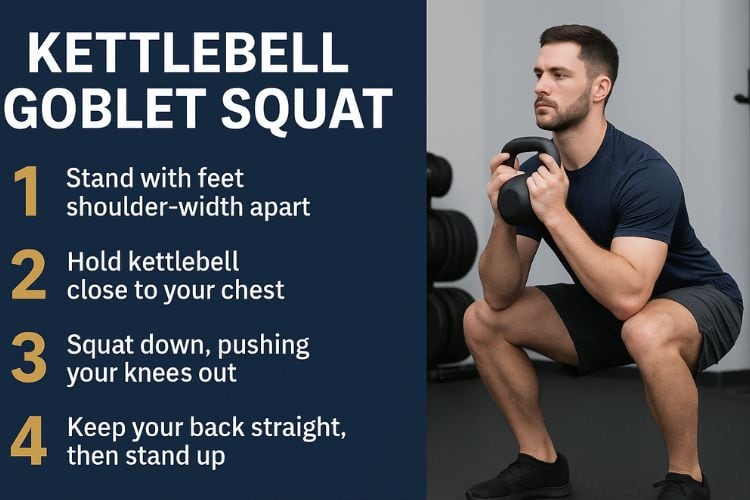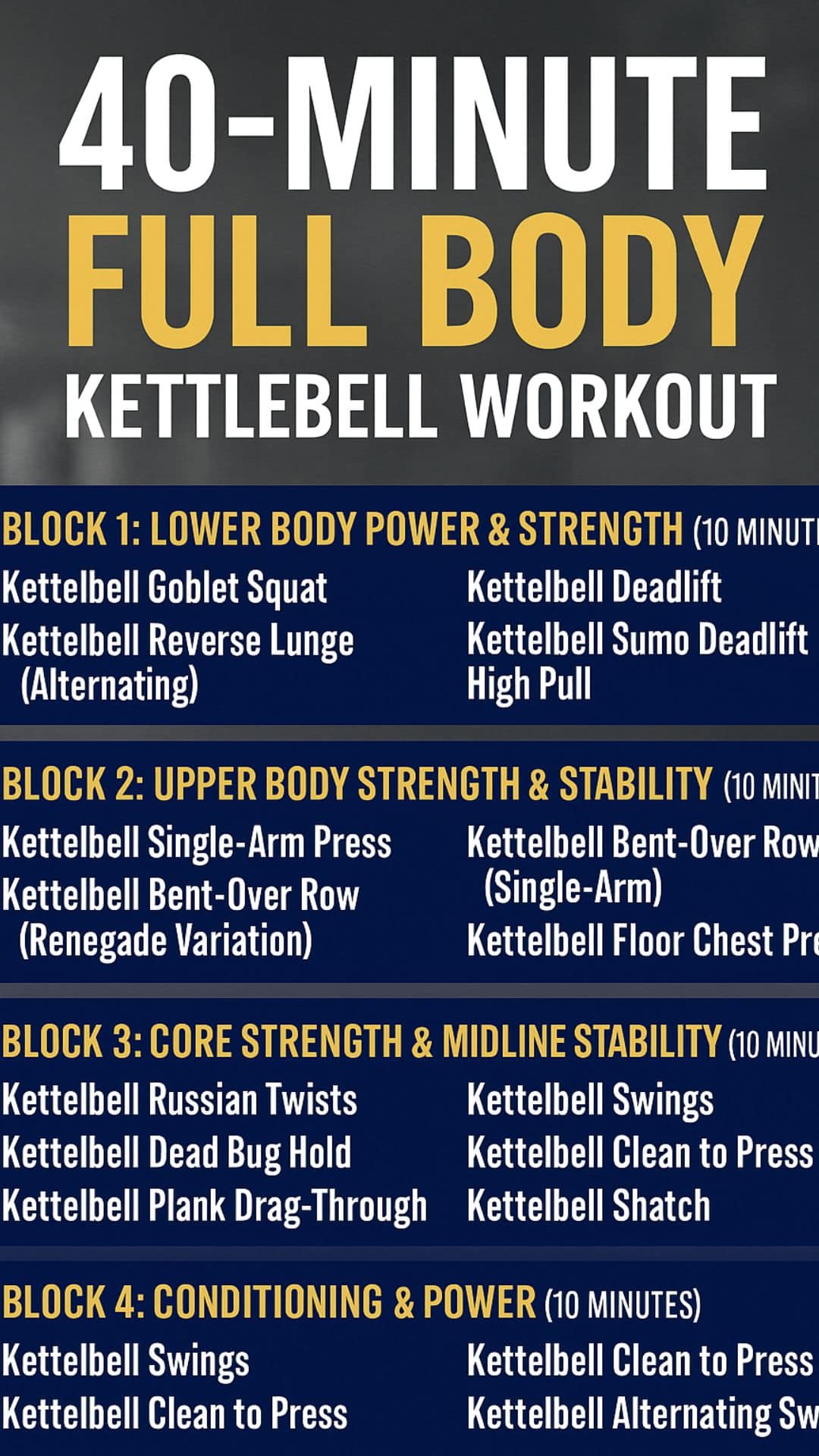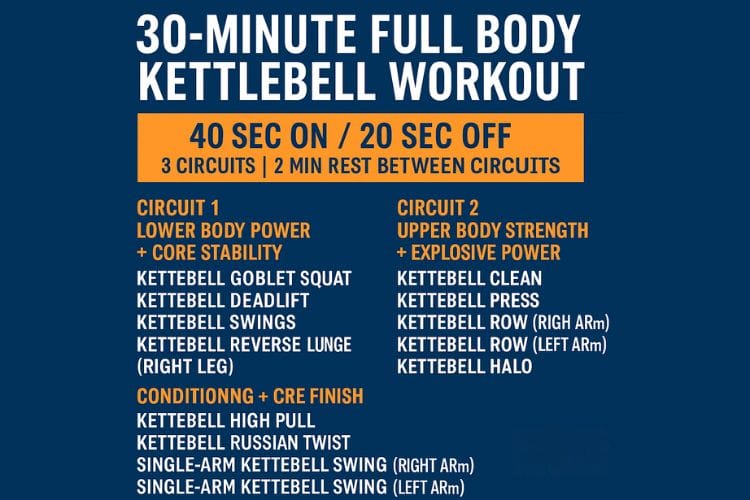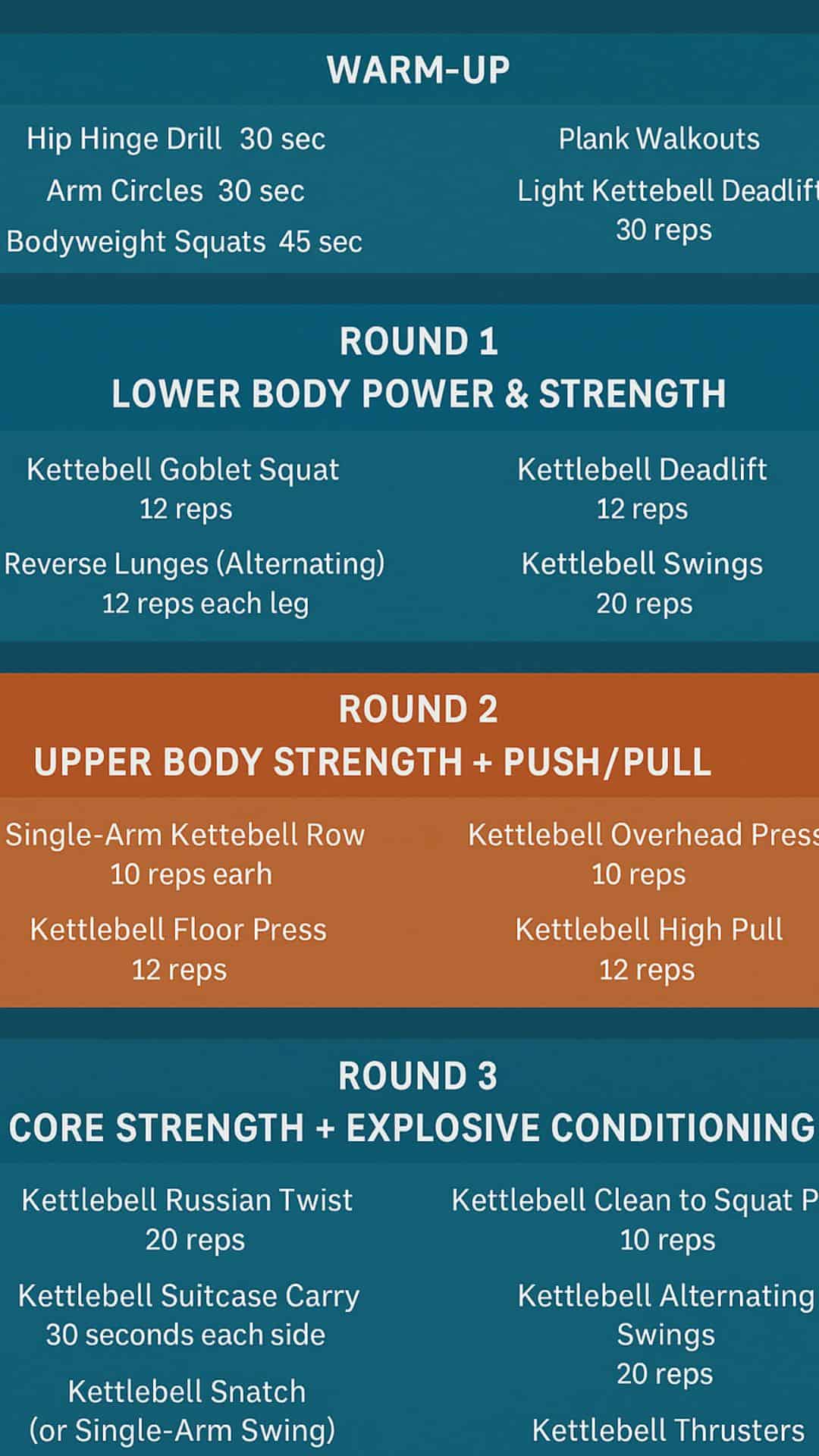
45 Minutes to Fit: A Full-Body Kettlebell Workout for All Levels

40-Minute Full-Body Kettlebell Workout (Build Muscle, Burn Fat)

30-Minute Kettlebell Workout for Total-Body Strength

25-Minute Full Body Kettlebell Workout for Strength & Fat Loss
Rowing Machine Workout Plan The Ultimate Row

Rowing machines are a fantastic way to get a full-body workout, combining cardiovascular fitness with muscle strengthening. Whether you are new to fitness or a seasoned athlete, a rowing machine workout can be tailored to meet your fitness goals. This guide will walk you through the benefits of rowing, the fundamentals of rowing machine technique, and provide a comprehensive workout plan.
Benefits of Rowing Machine Workouts
Full-Body Workout
Rowing machines engage multiple muscle groups, making them an excellent option for a comprehensive workout. When you row, you use your legs, core, and upper body, including your back, shoulders, and arms. This full-body engagement helps to build strength and endurance across various muscle groups simultaneously.
Cardiovascular Fitness
Rowing is an excellent cardiovascular exercise. It increases your heart rate, improves circulation, and helps to build cardiovascular endurance. Regular rowing workouts can improve heart health and reduce the risk of cardiovascular diseases.
Low-Impact Exercise
One of the significant benefits of rowing is that it is a low-impact exercise. This means it puts minimal stress on your joints, making it a suitable option for people with joint issues or those recovering from injuries. Unlike running or high-impact aerobics, rowing allows for a high-intensity workout without the risk of joint damage.
Calorie Burning
Rowing is an effective way to burn calories. Depending on your weight and the intensity of your workout, you can burn between 400 to 800 calories per hour. This makes rowing a great option for those looking to lose weight or maintain a healthy weight.
Fundamentals of Rowing Technique
Before diving into the workout plan, it’s crucial to understand the fundamentals of rowing technique. Proper technique not only maximizes the effectiveness of your workout but also minimizes the risk of injury.
The Catch
The catch is the starting position of the rowing stroke. Sit on the rowing machine with your knees bent and your shins vertical. Lean forward slightly, keeping your back straight and your core engaged. Hold the handle with both hands, arms extended straight in front of you.
The Drive
The drive is the power phase of the rowing stroke. Push off with your legs, driving your feet into the footrests. As your legs straighten, lean back slightly and pull the handle towards your lower ribs. Your arms should bend, and your elbows should stay close to your body. Keep your back straight and core engaged throughout this motion.
The Finish
The finish is the end of the drive phase. At this point, your legs should be fully extended, and your torso should be leaning back slightly. Your hands should be near your lower ribs, and your elbows should be pointing outwards.
The Recovery
The recovery phase is the return to the catch position. Extend your arms first, then lean forward from your hips, and finally bend your knees to slide back to the starting position. This phase should be controlled and smooth, preparing you for the next stroke.
Rowing Machine Workout Plan
This workout plan is designed to help you build endurance, strength, and cardiovascular fitness. It includes a mix of steady-state rowing, interval training, and strength-focused rowing.
Week 1-2: Building Endurance
Day 1: Steady-State Rowing
- Warm-up: 5 minutes of easy rowing
- Workout: 20 minutes of steady-state rowing at a moderate pace (aim for a stroke rate of 24-26 strokes per minute)
- Cool-down: 5 minutes of easy rowing
2: Rest or Light Activity
- Engage in light activities such as walking or yoga to promote recovery.
3: Interval Training
- Warm-up: 5 minutes of easy rowing
- Workout: 5 x 2-minute intervals at a high intensity (stroke rate 28-30 strokes per minute) with 2 minutes of rest between intervals
- Cool-down: 5 minutes of easy rowing
4: Rest or Light Activity
5: Steady-State Rowing
- Warm-up: 5 minutes of easy rowing
- Workout: 25 minutes of steady-state rowing at a moderate pace
- Cool-down: 5 minutes of easy rowing
6: Rest or Light Activity
7: Active Recovery
- Engage in light activities such as walking, stretching, or yoga.
Week 3-4: Increasing Intensity
Day 1: Interval Training
- Warm-up: 5 minutes of easy rowing
- Workout: 8 x 1-minute intervals at high intensity with 1 minute of rest between intervals
- Cool-down: 5 minutes of easy rowing
2: Rest or Light Activity
3: Strength-Focused Rowing
- Warm-up: 5 minutes of easy rowing
- Workout: 4 x 5-minute rowing at a moderate pace with 3 minutes of rest between sets (focus on powerful strokes)
- Cool-down: 5 minutes of easy rowing
4: Rest or Light Activity
5: Steady-State Rowing
- Warm-up: 5 minutes of easy rowing
- Workout: 30 minutes of steady-state rowing at a moderate pace
- Cool-down: 5 minutes of easy rowing
6: Rest or Light Activity
7: Active Recovery
Week 5-6: Advanced Training
Day 1: Pyramid Intervals
- Warm-up: 5 minutes of easy rowing
- Workout: 1-minute row at high intensity, 1-minute rest, 2-minute row at high intensity, 2-minute rest, 3-minute row at high intensity, 3-minute rest, then back down (2-minute row, 2-minute rest, 1-minute row, 1-minute rest)
- Cool-down: 5 minutes of easy rowing
2: Rest or Light Activity
3: Long Distance Rowing
- Warm-up: 5 minutes of easy rowing
- Workout: 45 minutes of steady-state rowing at a moderate pace
- Cool-down: 5 minutes of easy rowing
4: Rest or Light Activity
5: Interval Training
- Warm-up: 5 minutes of easy rowing
- Workout: 10 x 30-second sprints at high intensity with 1-minute rest between sprints
- Cool-down: 5 minutes of easy rowing
6: Rest or Light Activity
7: Active Recovery
Tips for a Successful Rowing Machine Workout Plan
Stay Hydrated
Hydration is crucial during any workout. Drink water before, during, and after your rowing session to keep your body hydrated and to support optimal performance.
Listen to Your Body
Pay attention to how your body feels during your workouts. If you experience pain or discomfort, stop and assess your technique. Overexertion can lead to injuries, so it’s essential to listen to your body and rest when needed.
Mix It Up
Variety is key to preventing workout boredom and ensuring balanced muscle development. Incorporate different types of rowing workouts, such as interval training, steady-state rowing, and strength-focused sessions, to keep your routine interesting and effective.
Focus on Technique
Maintaining proper rowing technique is crucial for maximizing the benefits of your workout and preventing injuries. Regularly review your form and make adjustments as needed. Consider working with a coach or watching instructional videos if you are unsure about your technique.
Set Realistic Goals
Set achievable goals for your rowing workouts. Whether it’s increasing the duration of your steady-state rows, improving your split times, or completing a specific number of intervals, having clear goals will help you stay motivated and track your progress.
A rowing machine workout plan is an excellent way to improve your cardiovascular fitness, build strength, and achieve a full-body workout. By following this structured plan and focusing on proper technique, you can maximize the benefits of rowing and enjoy a variety of workouts that keep you engaged and challenged. Remember to stay hydrated, listen to your body, and mix up your workouts to keep your fitness journey exciting and effective. Happy rowing!
Most Recommended
Subscribe to our Newsletter
Stay up to date on the latest men’s health, fitness and lifestyle trends and tips.
About Us
Men’s Fit Club was started with the goal of empowering men to get the most out of their lives. This meant going beyond exercise and diet tips to really address the broad range of issues that men face on a daily basis – topics like recreation, finding love, sexual health and even sound fashion advice.
Quick Links
© COPYRIGHT MEN'S FIT CLUB 2025. All Rights Reserved

